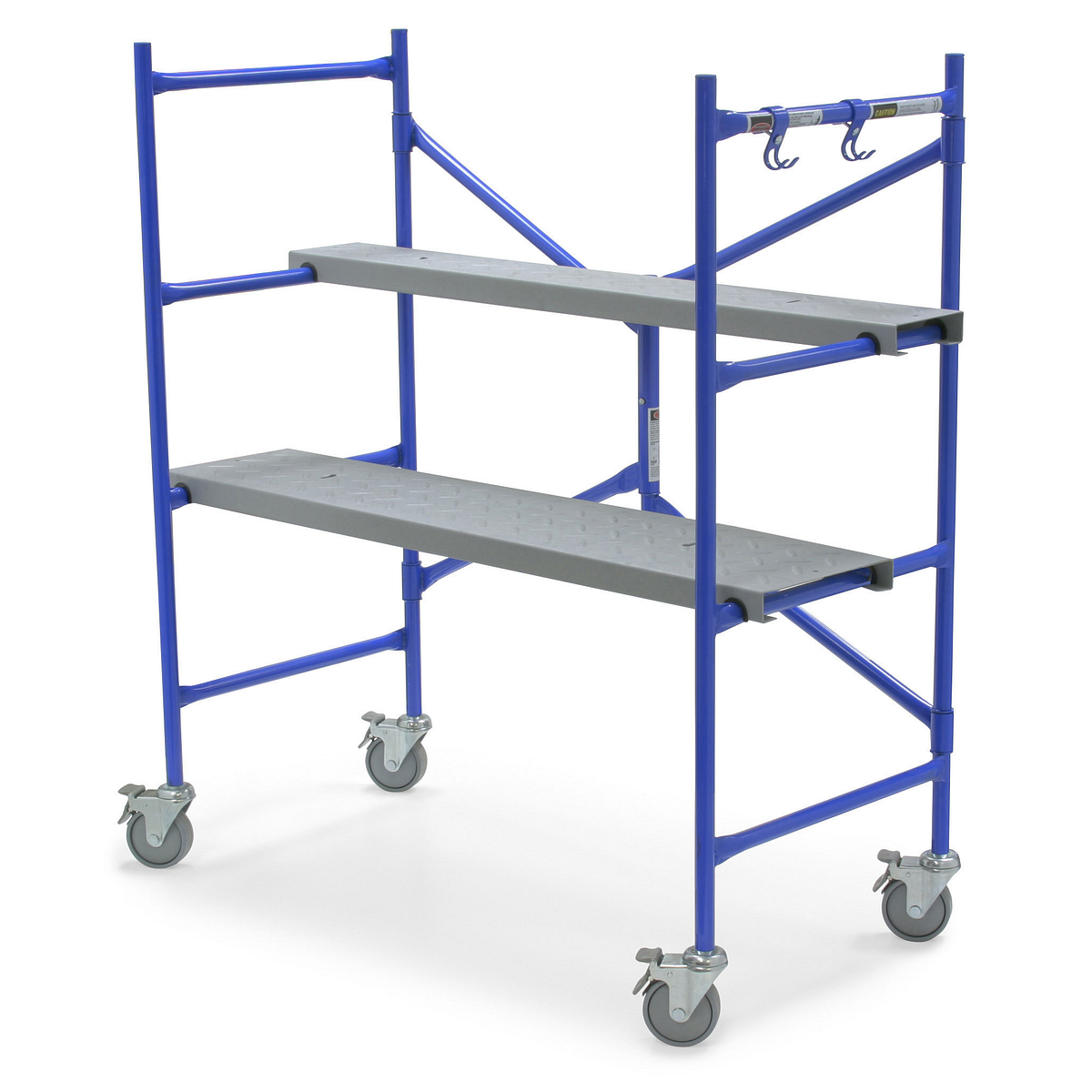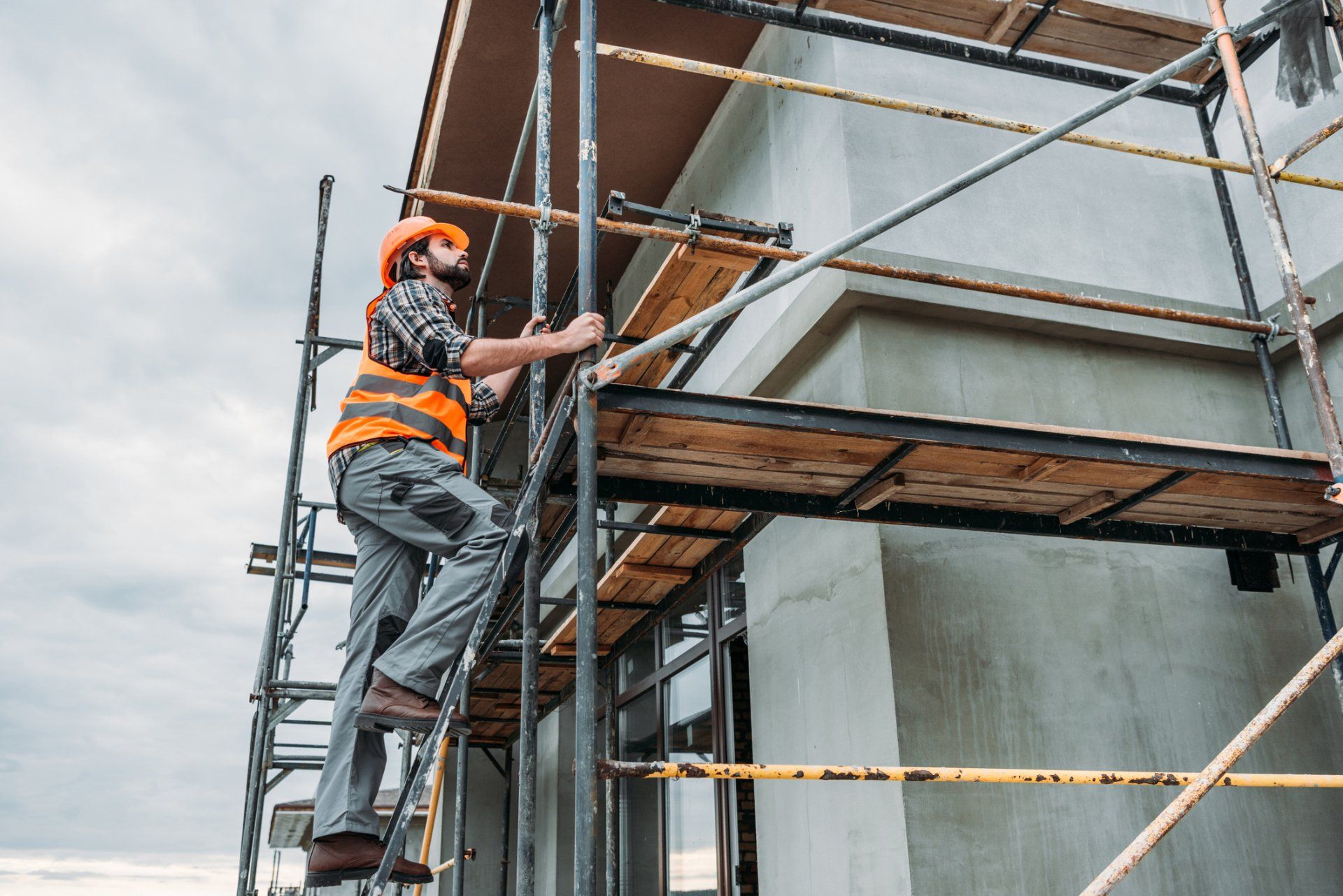Affordable Domestic Scaffolding for Every Home Renovation Project
Affordable Domestic Scaffolding for Every Home Renovation Project
Blog Article
Discovering the Different Sorts Of Scaffolding Used in Building And Construction Projects
The building market counts heavily on different kinds of scaffolding to satisfy specific project demands, each offering unique benefits and applications. Typical framework scaffolding provides a sturdy foundation for general jobs, while put on hold scaffolding is essential for work on high-rise frameworks. Various other alternatives, such as system and rolling scaffolding, accommodate performance and mobility, respectively. The cantilever variant proves very useful in metropolitan environments where space is constricted. Comprehending the subtleties of these scaffolding types is important for enhancing safety and performance on building sites, triggering a better evaluation of their unique features and applications.

Traditional Structure Scaffolding
Conventional frame scaffolding is one of the most extensively utilized techniques in the construction sector due to its effectiveness and flexibility. This system contains upright and horizontal structures that are put together to develop a secure system for employees and materials. The main components consist of vertical messages, horizontal ledgers, and angled dental braces, which with each other give a solid structure that can support significant loads.
Among the crucial advantages of conventional structure scaffolding is its adaptability to numerous building and construction projects, varying from residential structures to huge industrial structures. The modular design enables for very easy setting up and disassembly, making it effective for both short-term and long-term projects. Furthermore, the system can be tailored in height and width, accommodating various structure styles and website problems.
Safety is critical in scaffolding applications, and traditional framework systems are furnished with guardrails and toe boards to avoid drops and make sure employee security. Furthermore, normal assessments and adherence to safety and security policies are important in maintaining the stability of the scaffold. Overall, standard framework scaffolding stays a basic selection in the building market, giving a dependable platform for labor and enhancing general job efficiency

Suspended Scaffolding
Put on hold scaffolding supplies a distinct remedy for building tasks that call for access to elevated surfaces, specifically in circumstances where conventional framework scaffolding may be impractical. This kind of scaffolding is typically put on hold from the roof covering or top levels of a framework, making use of a system of ropes, wheels, and platforms to produce a working room that can be gotten used to numerous elevations.
Among the key benefits of suspended scaffolding is its adaptability. It can be quickly repositioned or lowered to fit modifications in building and construction requirements, making it excellent for tasks such as window installment, frontage work, and upkeep on skyscrapers. In addition, the minimal impact of put on hold scaffolding permits far better usage of ground area in city atmospheres, where room is frequently minimal.
Security is a crucial consideration in the use of suspended scaffolding. Correct rigging and securing systems need to be employed to guarantee stability and avoid crashes. Operators has to also be educated in the risk-free use this equipment. On the whole, suspended scaffolding supplies a efficient and efficient service for accessing hard-to-reach locations in different construction situations, enhancing both efficiency and security on site.
System Scaffolding
System scaffolding, typically considered as a modern-day service in the scaffolding industry, contains pre-engineered components that can be promptly constructed and adjusted for various building jobs. Scaffolding. This sort of scaffolding is characterized by its modular design, which permits convenience and performance on task sites, accommodating different elevations and structural requirements
Commonly made from high-strength steel or light weight click for more aluminum, system scaffolding provides enhanced resilience and security. The elements consist of upright posts, straight ledgers, and angled dental braces, which interconnect firmly, guaranteeing a robust structure. The design usually integrates standard fittings, streamlining assembly and disassembly procedures, thus reducing labor time and prices.

Rolling Scaffolding
Moving scaffolding is a functional choice to typical set scaffolding, made for flexibility and convenience of use on building and construction websites. This sort of scaffolding contains a system supported by frameworks with wheels, enabling workers to easily transfer it as needed. The flexibility attribute substantially improves productivity, as it lessens downtime connected with setting up and taking apart fixed scaffolding.
Generally constructed from light-weight materials such as aluminum or steel, rolling scaffolding supplies a strong yet portable remedy for jobs needing constant repositioning - Scaffolding. It is particularly beneficial in tasks such as paint, drywall installment, and electric work, where access to numerous heights and locations is needed
Security is paramount in rolling scaffolding layout, with functions such as locking wheels to avoid unintended activity when being used, and guardrails to protect employees from falls. In addition, numerous models are flexible in elevation, fitting various job needs.
Cantilever Scaffolding

The layout of cantilever scaffolding generally involves using arms or braces secured to a structure or structure, enabling the system to expand exterior securely. Security is critical; thus, these scaffolds must be crafted to hold up against environmental my link conditions and various lots. Normal evaluation and maintenance are necessary to ensure architectural honesty and employee security.
Cantilever scaffolding is favored for its versatility and reliable use area, making it a popular selection in city atmospheres where space restraints are usual. Additionally, it helps with easier accessibility to high elevations, inevitably adding to the general efficiency of building and construction jobs. As with all scaffolding kinds, correct training and adherence to safety requirements are important for employees using cantilever scaffolding.
Final Thought
To conclude, the diverse kinds of scaffolding made use of in building tasks each serve unique objectives tailored to particular website requirements. Standard structure scaffolding provides stability, while put on hold scaffolding supplies flexibility for raised jobs. System scaffolding facilitates quick setting up, and rolling scaffolding improves flexibility for varying workplace. Cantilever scaffolding properly addresses barriers in urban settings. Recognizing these scaffolding kinds is essential for enhancing security and efficiency in building and construction, inevitably adding to the successful completion of projects.
Typical structure scaffolding gives a tough structure for basic tasks, while suspended scaffolding is important for work on skyscraper frameworks.Rolling scaffolding is a versatile option to standard fixed visit their website scaffolding, developed for movement and simplicity of use on construction websites. As with all scaffolding kinds, appropriate training and adherence to safety standards are critical for employees making use of cantilever scaffolding.
Standard framework scaffolding provides security, while put on hold scaffolding provides versatility for raised tasks. System scaffolding helps with fast setting up, and rolling scaffolding improves mobility for differing work environments.
Report this page